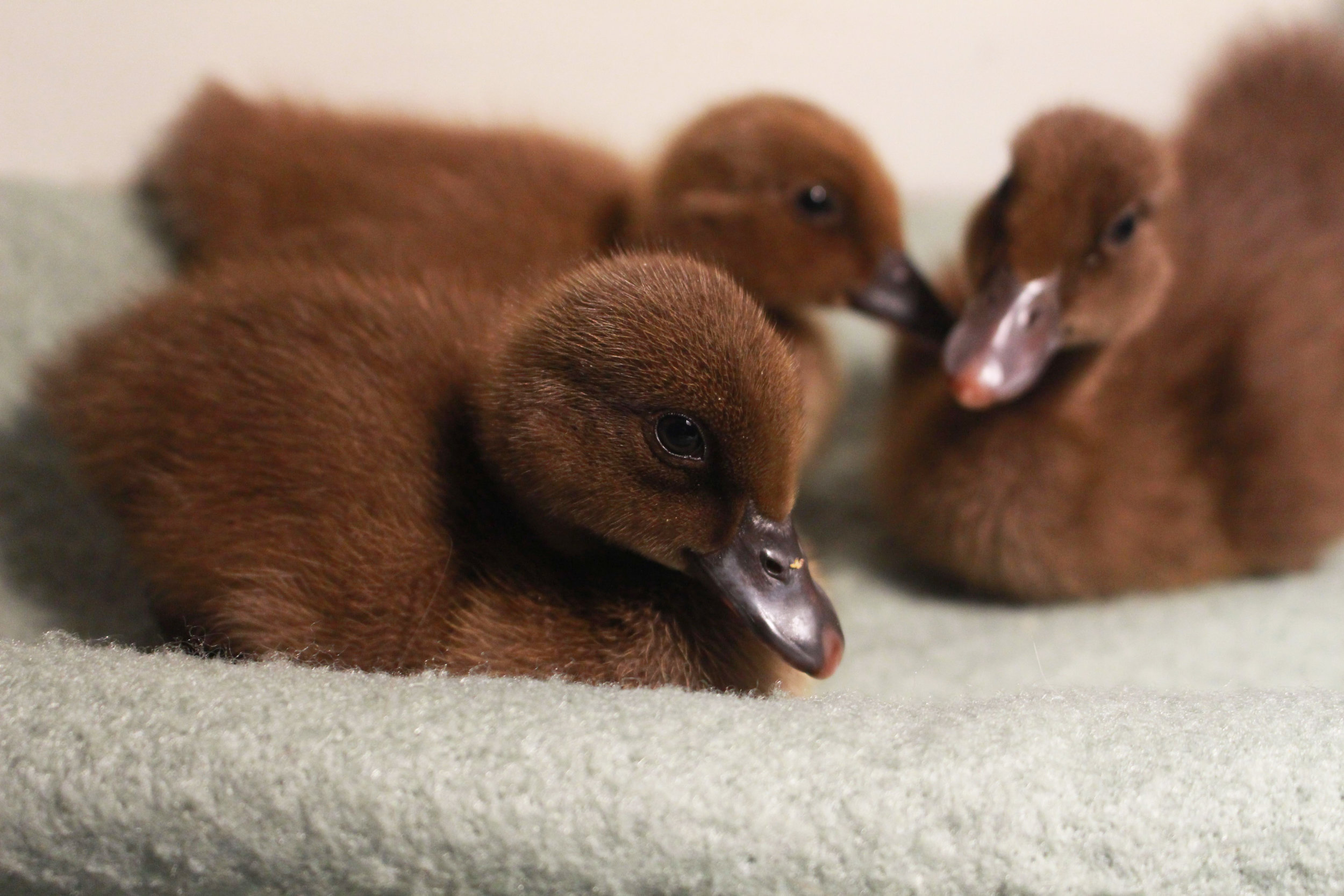Ducklings - A Photo Essay
By Elodie Reed
Khaki Campbell ducklings are, obviously, incredibly cute, but that doesn’t mean you should purchase fowl to celebrate getting over the mysterious week-long-kick-you-in-the-ass illness that spread around your newspaper office, which, oddly enough, seemed to come over everyone the day after you made that reporting trip to the bird rescue.
But you’re riding that sudden invincible-health-high, and you’re at Tractor Supply with your mother, and the two of you have always wanted ducks, so you convince her to buy three, and you tune out the brain-voice saying THIS IS A BAD IDEA by concocting a foolproof plan: you’ll raise the ducklings in your apartment – you won’t tell your landlord, of course – and your mother will take them after two months and integrate them into her chicken coop.
To house the ducklings, you dig out that old cage from when you adopted chinchillas as a kid, chinchillas who lived for so freaking long, long enough that you sort of lost interest and kind of regretted being responsible for them those last couple years before they died, somewhat conveniently, right as you left for college.
In your first week as a duckling-mom, you leave the office as early as you can each day to get home to your ducklings, and after playing with them on a poop-protective blanket, feeding them, watering them, cleaning their cage and unclogging the bathroom sink full of shavings, you record in a special “duckling journal” everything about them that you love: the way their brown eyes watch you; the way they waddle with their stubby wings spread out for balance; the way they go cheep cheep because they can’t quack yet; the way they stick together like so many fuzzy-feathered magnets; even the way grey and white matter rockets out from their hind ends with a little pfffft sound.
You stop journaling because the ducklings grow wicked fast and kind of take up a lot of your free time now that they’re big enough to get baths each night; you’ve also had to go back to Tractor Supply for a bigger water dispenser, and to Walmart for an extra-large Rubbermaid bin so they stop spraying shit on the walls through your chinchilla cage bars.
It’s been a month, the ducklings are unprecedentedly huge and smelly, your heat lamp fell and bonked one of them on the head, and you’re somehow sick again. That’s how you guilt your mother into meeting you in the parking lot halfway between your parents’ house and your apartment, and that’s where you shove the extra-large Rubbermaid bin full of ducklings into her backseat.
You visit your parents’ backyard coop a month later, which now has a kiddie pool, and you chase your full-grown ducks until you manage to get one and hold it that one time before your mother calls you a few days later with some bad news: it was raining the night before, the ducks wouldn’t come inside the coop, and in the morning, she could only find one of them, splayed out on the driveway as if dropped from a great height.
Elodie Reed is a current degree candidate at The Mountainview Low Residency MFA in Fiction and Nonfiction.








